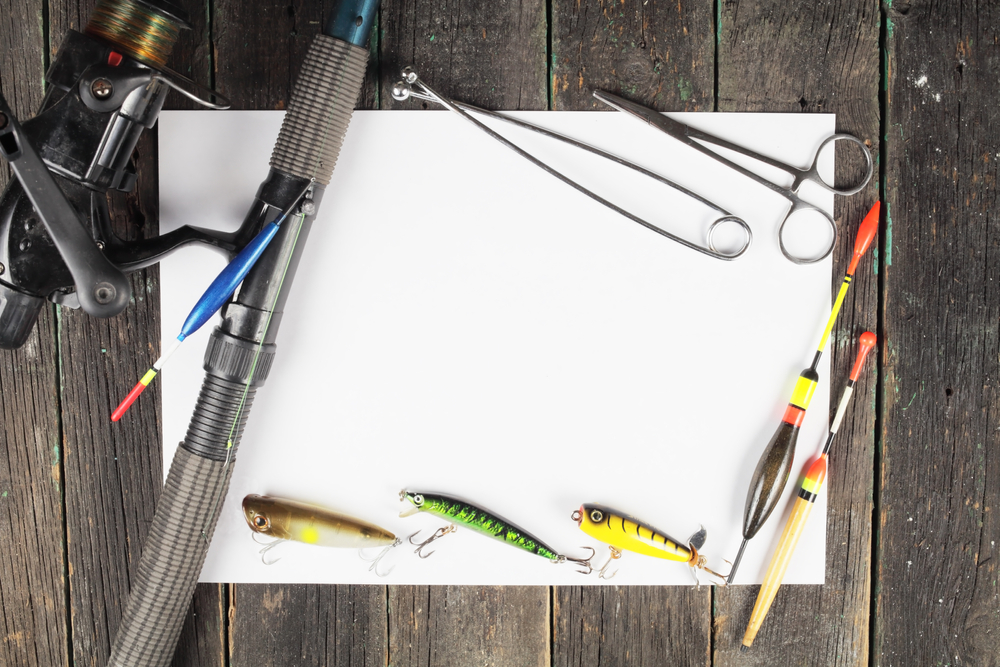What Is A Fishing Report?
A fishing report gives detailed description on the fishing conditions on any given body of water, outlining such things as weather patterns, water depth, and what fish are biting on. With the advent of the Internet, online fishing reports have taken off in popularity. Many reports are created by bloggers, forum users, guides, and independently-run organizations, all of whom try to pass off their knowledge and experience to curious anglers. The Department of Natural Resources (DNR) for each state tends to provide a weekly report on fishing as well.
Government articles can be broad as they must cover an entire state, but many reports go as specific as dealing with just one lake or river, especially larger bodies of water like Lake Michigan.
Many reports are often first-hand accounts of a writer’s own experiences, told in an informal style that can bring a more humorous, personal angle to fishing. While others give more detailed descriptions of things like fish population and feeding trends.
What Kind Of Fishing Reports Are There?

Fishing reports can be as specific as telling you what lures are working well at the time on a certain body of water to as broad as the feeding patterns of fish in a state over an entire year. There are daily and monthly reports but the most common among today’s anglers is a weekly fishing report.
The three most common forms of reports deal with either a specific species, a body of water, or a certain type of fishing style. They are often intertwined, but generally there is a focus on one of these three areas.
Fishing Reports By Area
By far the most common form of fishing reports outline the fishing of a given area, from the tiniest of lakes to an entire ocean coast. Generally you would be looking for information in your own area, learning what fish are biting, how the weather is affecting the fishing on certain lakes, things like that. However, not everyone lives in a populous area where there are detailed reports for your location. The best you can do is try and get more general information for a broader area, the DNR weekly reports as mentioned above being a great example.
Fishing Reports by Species
If you were only concerned about one type of fish, and have no real concern about sticking to one body of water, than these are the kinds of reports you must look for. For example, you could just look for salmon fishing reports and you’ll find some that cover a broad area, filling you in on the latest news like stocking and population trends. The most valuable information you can take from this type includes things like tips, techniques, gear reviews, and fishing trip recommendations.
Fishing Reports by Types of Fishing
There is more than one way to catch a fish, which is why you can find many reports specifically catered to particular styles. From fly fishing reports to surf fishing, from offshore to even spear fishing…basically, if it’s been done, it’s been written about. All information in the reports are based on the fishing patterns learned through a particular style. Want to get a steel-head fishing report in your area? Search around and you can compare how fish are biting between bait casting and fly fishing styles.
Why Are Fishing Reports Useful?

People like to be as prepared as they can and fishing reports will help any angler feel like they know more about what to expect after a few reads online. For example, you may learn from a lake trout fishing report that fish haven’t been feeding very much at depths under 30 feet because of warm temperatures in recent weeks, but a heat wave has suddenly brought trout closer to the surface. If you look at several different reports that all share one idea, than chances are these statements are true and you should go and test them out.
Much information can be gleaned from government reports as information is pulled together from a variety of sources. Often species are broken down and discussed in detail, explaining how well the species are biting and what natural patterns could or have already affected each fish. If you have a hankering to go hit surf for some bass, reading a surf fishing report will enable you to better learn what technique is working at the moment, where fish are specifically congregating, and what bait is working best in current weather conditions.
More than anything, reports allow you to spend less time finding the right bait and location through trial and error and more time catching fish. While the chase is certainly a great thrill in its own right, there is also some pride in being rewarded for the research you put in before you even wet the line.
Fishing reports are also helpful for an inexperienced angler, or for anyone who wish to test their luck against a fish they’ve never tried before. Search for your fish of choice and area and chances are you’ll find the answers you seek. If not, there are countless fishing forums that can help bring out the advice you need, all you need to do is ask. These online communities are also a great place to share information of your own as well.
Where Do You Find Fishing Reports?
Finding the answers you seek is best looked for online. From there it’s just a matter of finding a site or two that looks helpful and going from there. As mentioned above, if you’re looking to ask questions, try searching forums for information. If you want a government website, a quick and effective search is to type in the initials of a state, like ‘MI fishing reports.’ Michigan’s Department of Natural Resources will pop up and provide very handy descriptions of fish across the state in the past week.
The easiest thing to do is to type in the fish or region you’re looking for into a search engine with the words ‘fishing reports’ attached.
Jack Bollinger
Not all reports are found online, however. Some deal on a much broader scale and not only track what has taken place in the past, but also formulize the status of certain fish species based on trends. Magazines are a popular medium for such a thing, as monthly reports are often showcased to advertise an ongoing or even upcoming season.
Annual publications, often issued by government bodies, provide even deeper analysis of local fish patterns. Stocking of fish is mentioned at this level as well as any problem diseases, culminating in a review of the year and how it compares to previous seasons. Anglers can take this knowledge and get a better sense of how the fishing community has and is developing as a pastime.
How To Write Your Own Report

Perhaps reading other’s discoveries isn’t for you. Maybe you have a wealth of knowledge yourself and you’d rather try making what information you pick up known to the world. Whatever your reasons, anyone can write a report, it’s just a matter of discovering your own niche and finding readership for your work. There are two important steps you need to consider when writing a report:
What’s your medium?
If you plan on writing for the web, how will you go about doing it? Many start their own blogs, but there are even more sites that allow you to sign up and become a contributor yourself. If you’re having trouble finding space to write your observations but have an itch to share your knowledge, start posting on fishing forums and build a reputation.
What will you write about?
Will you focus on a set location, species, or fishing style? Many sites are dedicated to a certain theme that you must abide by. If you have your own blog then the rules are not so strict, but consistency is appreciated for most readers. Moreover, what exactly will you be sharing? Not every writer gives out their secrets, opting instead to avoid mention of successful lures and exact location.






